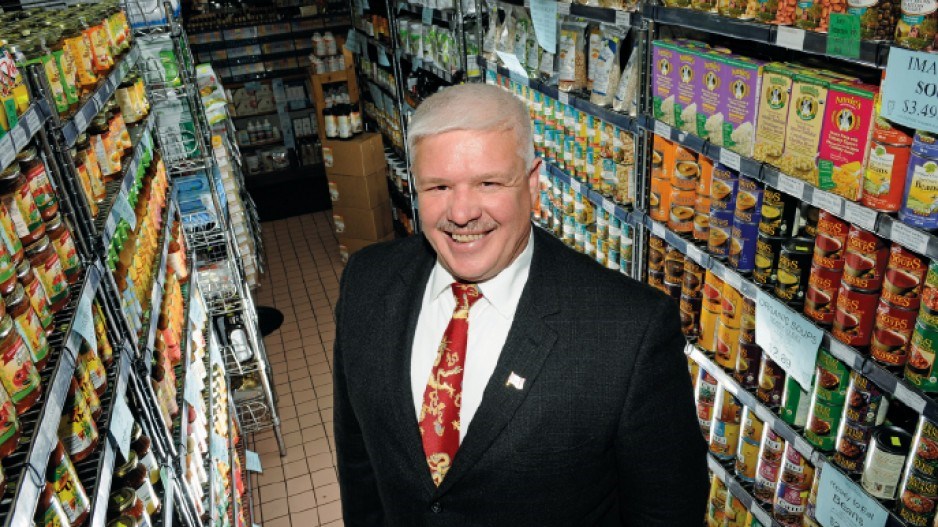North American businesses looking to expand (or, in some cases, launch) are increasingly setting their sights on China. It isn’t hard to see why.
businesses looking to expand (or, in some cases, launch) are increasingly setting their sights on China. It isn’t hard to see why.
“We’re going into the biggest market in the world,” said Paul Marquis, co-founder of Vancouver startup H7 Distributors Ltd. “China’s an economy that’s still moving forward, whereas other countries are stagnant or moving backward. They’re doing extremely well.”
Marquis, whose plan is to export organic and natural foods from Canada to China, has ties to the world’s most-populated country through his wife and business partner, who hails from Ningbo, a port city in the province of Zhejiang.
“We’ve been travelling to China for three years now and had identified a market there for better-quality organics. Canadian products meet that high standard, so we plan to be more specific than the existing market there.”
Marquis admits having a familial connection doesn’t hurt.
“It’s a very communal market. It’s challenging for someone from the outside, so to speak, to come in, so my being family certainly helped make this a feasible enterprise.”
Those who don’t have blood connections, however, aren’t completely out of luck.
“Cultivating personal relationships in business is a long-standing practice in China, so developing personal rapport … through close interaction forms the basis for nearly every transaction,” said Marquis. “You can’t just storm in and expect it to work.”
His wife’s background in medicine, nutrition and yoga also gave H7 a foothold in China, where “the bureaucratic process is challenging and … turns some people away.” And, not only is the company’s website translated into Chinese, Marquis may eventually use “.cn” as his primary domain (rather than “.ca) to solidify his overseas presence.
“Just as I’m proud of being Canadian, I believe Chinese people have that pride, too,” he said. “It’s a direct link to feeling at home when purchasing products online, and that’s very important to business.”
While providing your online information in Chinese is key, changing the way you market yourself on the Internet is not, said Joseph Cooke, director of global strategy for Web Presence in China (WPIC), which offers “tip-to-tail digital entry services … to western organizations actively looking for China marketing strategies.”
According to Cooke, who splits his time between Vancouver and Hong Kong, “the Chinese are no different from us in that they are sophisticated, tuned-in consumers who want authenticity … not a sinocized front. Starbucks, McDonald’s and Nike, among others, are gangbusters in China because they … brought the brand experience that worked in the West. The Chinese are wild about western goods and services.”
However, he warned, “We do design [websites] for streamlined use. China has the second-slowest Internet in the world.”
Cooke’s advice for those wishing to enter the Chinese consumer market: “Start online. Unless you’re selling farm implements, everyone you want to sell to in China is online. Online selling is the most scalable, measurable, lowest-risk, highest-potential ROI method of sales and marketing period – in the West, and also in China.”
To that end, WPIC provides website design and registration, search engine optimization and marketing, social media and online advertising to clients like VantageWire – a Vancouver-based firm that offers free, real-time stock quotes to Internet users on all North American markets.
VantageWire president Matt Fleming said making the decision to take his services to China after realizing “there’s very little information over there in our space” was easy. Executing, however, proved more difficult.
“We wanted to offer a similar site to our own with information about Canadian natural resources – mining, oil and gas, high-tech – but in Mandarin,” he said. “Only you can’t do it from here, you have to do it within China due to firewall regulations and things like that.”
Fleming said a company like WPIC, which “really understands the market over there,” can be the missing link for anyone wanting to do business in China.
And who wouldn’t? Cooke said the Chinese market is “palpably close to the westerner with the gumption to reach out. People from other countries have been selling to us forever.
“Now it’s time to reach out to the world’s most dynamic consumer barrier. Those who let the language barrier hold them back are not fit to survive in the new economic reality.”
While Marquis agrees that “we have to be able to make money to move forward,” for him the rewards are not just monetary.
“It’s connecting two countries and two cultures [and] developing relationships in a healthy way,” he said. “We’re looking forward to bridging that culture gap and bringing these two worlds together.” •




